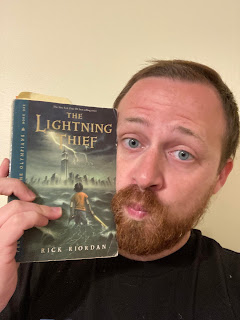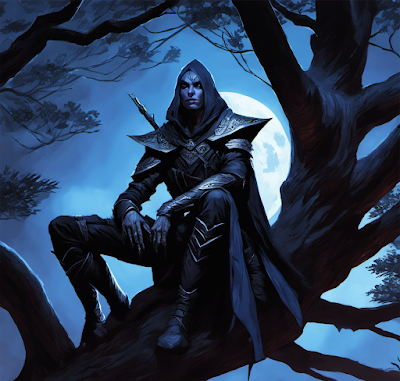The Treasure of Mythology
Last
week, my 7th Grade English classes began a novel study on Rick
Riordan’s The Lightning Thief. This
is the first book in the five-book series Percy
Jackson and The Olympians. The story centers around pre-teen Percy Jackson,
who learns he is the son of one of the Greek gods, who, as the book series dictates,
are real and have quite an influence on the mortal world. Percy embarks on an
adventure filled with monsters, demigods, and satyrs, the myths of Ancient
Greece coming alive all around him.
I
read this book when I was in elementary school, and I absolutely loved it, as I
still do. And as I’m seeing in my classes, my kids love it as well. We are not
just studying the functions of a novel and literature, but we are also
experiencing the worldview of the Ancient Greeks, learning about the mighty
heroes, creatures, and gods that they believed actually existed. I have
students who don’t usually engage in class saying to me, “Mr. Corder, I want to
keep reading, this is getting good!”
Music
to a teacher’s ears.
Now,
the idea of mythology may not seem important to most people. As I overheard one
person close to me say a number of years ago, learning mythology in school is
useless. Well, with all due gentleness and kindness, I want to say this about
that sentiment: that’s a load of poppycock! (Sorry to fly off the handle like
that.)
People
who say such things about mythology don’t have a good grasp of what mythology
is. Mythology isn’t just made-up fairy tales featuring odd creatures and people
with names that you can barely pronounce—they are a backbone of a culture. They
are what ancient societies used to explain natural phenomena and make sense of
the world around them. With myths comes a cacophony of knowledge related to
history and literature.
Myths
have also built our modern society as a whole. Did you know that we get our
names for the days of the week from Norse gods? (Wednesday—Wodin’s/Odin’s Day,
Thursday—Thor’s Day). We have sports teams called “Trojans” and “Titans.” Goodyear’s
logo is based off of the Greek messenger god Hermes. In short, you can’t swing
a cat without hitting something related to mythology—it’s all around us.
But
it goes so much deeper than that. Myths also teach us lessons. The fall of
Icarus warns us against arrogance. Pandora’s box teaches us that some riddles
are better left as mysteries. Thor’s competition against the giants teaches us
that not all things are what they appear to be. Within myths we find the marrow
of life, and the Truth that ties the very fabric of existence together.
So,
is it important to learn about mythology? Absolutely. Especially, because as I
am seeing in my classes, it’s getting students interested in reading. Because I
do agree, they are stories, but stories that resonate with us as human beings. So,
by all means, let us experience more mythology, whether it be in a Young Adult
series like Percy Jackson or in other readings we come across as we visit our
bookshelves.



Comments
Post a Comment